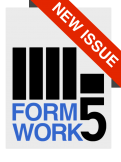The new Catholic Systemic Schools Enterprise Agreement (EA) has improved teacher classification provisions for teachers who have overseas service or who have spent time out of the workforce caring for young children. Teachers will need to apply to their diocese in order to get the additional pay steps, after the new agreement has commenced.
Overseas service
All teachers, including both those who are long standing and teachers on the standards scale, can now claim credit for teaching service overseas. The teaching service must have been in a country where teacher education qualifications are recognised by NESA and must have been in a recognised primary or high school. Under the 2015 Enterprise Agreement, there was no right for overseas service to be counted towards your pay step.
In order to claim credit for the service, teachers employed at the time the new enterprise agreement commences will need to produce a statement of service from the overseas school within 12 months – if you miss this deadline, you will not be able to claim in the future. If your claim is successful, you will be back paid from the first pay period after 1 January 2018.
There are also new provisions for overseas experienced teachers employed on the standards pay structure who do not have NESA or TQI Proficient Teacher status when they start teaching in NSW or the ACT. Under the 2015 Enterprise Agreement, overseas teachers were deemed to be on Band 1 even if they were experienced, because they did not have Proficient Teacher status. Under the new provisions experienced overseas teachers can go to Band 2 but must gain Proficient status with one year of teaching service in order to remain on Band 2.
Experienced teachers moving from interstate and teachers who have lost their Proficient status because they have been away from teaching for more than five years will also benefit from this provision, called Proficient Pending.
Child-rearing
Recognition of full time care of children below school age as teaching service (one the basis of one/third weighting) was part of the old incremental teacher pay scale but was not part of the standards pay structure that commenced from 2016 for new teachers. Under the new EA, child-rearing will now count as service for teachers on the standards pay structure on the same one/third basis, subject to some limitations. As with overseas service, teachers will need to apply for recognition of the child-rearing within 12 months of the starting date of the new enterprise agreement and pay increases will be backdated to the beginning of 2018.
Any questions?
If you think you may be eligible for a pay rise under the new provisions check the wording of the new EA or call your organiser for advice.










































































































































